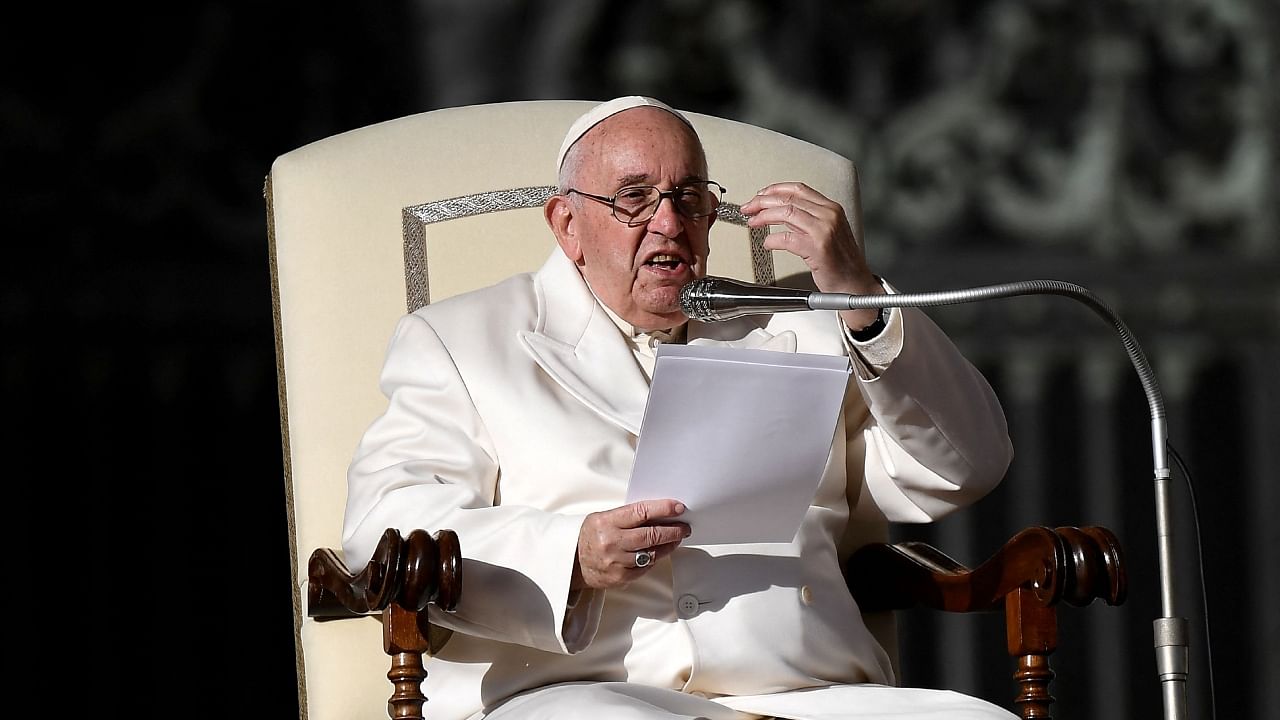
Pope Francis on Wednesday linked the suffering of Ukrainians now to the 1930s “genocide artificially caused by Stalin," when the Soviet leader was blamed for creating a man-made famine in the country believed to have killed more than 3 million people.
Francis' linking of the plight of Ukrainian civilians today to those killed by starvation 90 years ago, and his willingness to call it a “genocide” and squarely blame Josef Stalin, marked a sharp escalation in papal rhetoric against Russia.
As of this year, only 17 countries have officially recognised the famine, known as the Holodomor, according to the Holodomor Museum in Kyiv.
In comments at the end of his weekly Wednesday general audience, Francis renewed calls for prayers for the “terrible suffering for the dear and martyred Ukrainian people.”
He recalled that Saturday marks the 90th anniversary of the start of the famine, which Ukraine commemorates every fourth Saturday of November with a Day of Memory.
“Saturday begins the anniversary of the terrible genocide of the Holodomor, the extermination by starvation artificially caused by Stalin between 1932-1933,” Francis said. “Let us pray for the victims of this genocide and let us pray for so many Ukrainians — children, women, elderly, babies — who today are suffering the martyrdom of aggression.”
Academic opinion remains divided about whether the famine constitutes a “genocide,” with the main question being whether Stalin intentionally wanted to kill Ukrainians as an attempt to quash an independence movement against the Soviet Union, or whether the famine was primarily the result of official incompetence along with natural conditions. Regardless, the “great famine” seeded lingering Ukrainian bitterness toward Soviet Russian rule.
The Vatican, in its 2004 Compendium of the Social Doctrine of the Church, lists Ukrainians along with Armenians and Jews as victims of 20th century genocides and said “Attempts to eliminate entire national, ethnic, religious or linguistic groups are crimes against God and humanity itself, and those responsible for such crimes must answer for them before justice.”
Francis has repeatedly called for peace and an end to the war, has sent humanitarian aid to Ukraine and has called incessantly for prayers for the “martyred” Ukrainian people.
But he has generally declined to assign blame or even name Russia or President Vladimir Putin, and has repeated the Kremlin's complaints that NATO was “barking at its door” in its eastern expansion.
The Vatican has a tradition of not calling out aggressors, believing that behind-the-scenes diplomacy is more effective than public denunciation.
The Holy See is also eager to maintain relations with the Russian Orthodox Church, which has strongly backed the Kremlin in the war.
According to the Holomodor Museum, 16 states in addition to Ukraine have recognized the famine as genocide: Australia, Ecuador, Estonia, Canada, Colombia, Georgia, Hungary, Latvia, Lithuania, Mexico, Paraguay, Peru, Poland, Portugal, the United States and the Vatican. Some other countries, such as Argentina, Chile and Spain, have condemned it as “an act of extermination.”
Francis in 2015 riled Turkey when, from the altar of St. Peter's Basilica, he publicly declared the Ottoman-era slaughter of Armenians a genocide.
This summer, during an airborne press conference returning home from Canada, Francis concurred that the attempt to eliminate Indigenous culture in Canada through a church-run residential school system amounted to a cultural “genocide," though he neglected to say so when he was in Canada itself.